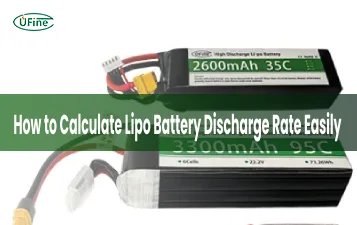Regarding mobility scooters, batteries are the lifeblood that keeps these convenient devices up and running. A reliable and efficient battery ensures a smooth and uninterrupted ride. In this comprehensive guide, we will explore the world of mobility scooter batteries, exploring different types, offering guidance on battery selection, providing maintenance tips, and addressing common troubleshooting issues. So, let’s embark on this battery-powered journey!
Part 1. Types of mobility scooter batteries
Lead-Acid Batteries
Lead-acid batteries have long been the standard choice for mobility scooters. These batteries are affordable and widely available. They are known for their durability and ability to provide consistent power output. However, they are relatively heavy and require regular maintenance, including checking water levels and ensuring proper charging habits.
Gel Batteries
Gel batteries are a popular alternative to lead-acid batteries. They use a gel-like electrolyte, which makes them spill-proof and maintenance-free. Gel batteries offer improved safety, longer lifespan, and better performance in extreme temperatures. However, they tend to be more expensive upfront compared to lead-acid batteries.
Lithium-ion Batteries
Lithium-ion batteries have gained significant popularity in recent years due to their lightweight design, high energy density, and long lifespan. These batteries offer excellent performance, quick charging times, and reduced maintenance requirements. Although they are more expensive initially, their benefits often outweigh the higher cost for many mobility scooter users.
Part 2. How do I choose a battery for my mobility scooter?
Choosing the correct battery for your mobility scooter ensures optimal performance and reliability. Here are some factors to consider when selecting a battery:
1. Battery Capacity
The battery capacity determines how far your mobility scooter can travel on a single charge. Measure it in ampere-hours (Ah). Consider your typical usage patterns and select a battery with sufficient capacity to meet your needs.
2. Compatibility
Ensure that the battery you choose is compatible with your mobility scooter model. Check the manufacturer’s specifications or consult a knowledgeable professional to find the correct battery that fits your scooter.
3. Battery Weight
The battery’s weight can significantly impact your mobility scooter’s overall weight and maneuverability. If you require a lightweight scooter for easy transport or maneuvering, opt for batteries that are lighter in weight, such as lithium-ion batteries.
4. Battery Lifespan
Consider the expected lifespan of the battery. Lithium-ion batteries typically offer a longer lifespan compared to lead-acid batteries. While they may be more expensive initially, they can save you money in the long run by lasting longer and requiring fewer replacements.
5. Budget
Set a budget and explore battery options within that range. Although lithium-ion batteries may have a higher upfront cost, they can provide significant benefits in terms of performance and longevity.
Part 3. Maintenance tips for mobility scooter batteries
To prolong the lifespan and optimize the performance of your mobility scooter batteries, follow these maintenance tips:
1. Regular Charging
Charge your batteries regularly, ideally after each use. Avoid fully depleting the battery before recharging, leading to decreased battery life.
2. Proper Storage
Store your mobility scooter in a cool and dry place when not in use. Extreme temperatures can affect battery performance and lifespan. If storing for an extended period, ensure the batteries are charged to around 50% to prevent self-discharge.
3. Clean Connections
Periodically clean the battery terminals and connections to prevent corrosion. Use a soft cloth or brush to remove dirt or debris, ensuring a solid connection for efficient power transfer.
4. Avoid Overcharging
Avoid overcharging the batteries, as it can lead to reduced battery life. Follow the manufacturer’s recommendations for charging times and avoid leaving the batteries connected to the charger for an extended period.
Part 4. Troubleshooting common problems with mobility scooter batteries
Despite proper maintenance, mobility scooter batteries may encounter issues. Here are some common problems and possible solutions:
1. Insufficient Range
If your mobility scooter is not providing the expected range, it could indicate a battery issue. Check the battery connections, ensure proper charging habits, and consider upgrading to a battery with a larger capacity if necessary.
2. Slow Charging
If the batteries take an unusually long to charge, check the charger and connections for any faults. Consider replacing the charger if needed. It is also worth inspecting the batteries for signs of aging or deterioration, as this can affect charging speed.
3. Battery Deterioration
Over time, batteries may deteriorate and lose their capacity. Notice a significant decrease in battery performance or a shorter lifespan. It may be time to replace the batteries. Consult with a professional to determine the best course of action.
4. Intermittent Power
If your mobility scooter experiences intermittent power or sudden shutdowns, it could indicate a loose connection or a faulty battery. Inspect the battery connections and ensure you securely fasten them. If the issue persists, seek professional assistance to diagnose and resolve the problem.
Part 5. FAQs
-
Can I use any battery in my scooter?
No, you can’t use any battery in your scooter. Choosing a 12-volt battery compatible with your scooter’s electrical system is essential to ensure safe and efficient operation. -
Can I use a higher Ah battery in my scooter?
Yes, you can use a higher Ah (ampere-hour) battery in your scooter, provided that it fits within the physical dimensions of the battery compartment and is compatible with your scooter’s charging system. A higher Ah battery can give a more extended range between charges. Still, it will ensure that the scooter’s electrical system is manageable. -
Will a bigger battery make my scooter faster?
Not necessarily. While a more extensive battery may provide more power and increase the scooter’s range, it will sometimes make it slower. Factors such as motor power, controller settings, and aerodynamics primarily determine the speed of a scooter. -
What is the best battery capacity for a scooter?
The best battery capacity for a scooter depends on your specific needs and usage patterns. When choosing a battery capacity, it’s essential to consider factors such as range requirements, weight, and size constraints. Generally, a battery capacity between 10Ah and 20Ah should suffice for most electric scooters for commuting or short trips. -
What is the safest battery for a scooter?
The safest battery for a scooter is often a lithium iron phosphate (LiFePO4) battery. LiFePO4 batteries are known for their stability, durability, and safety features. They have a lower risk of thermal runaway, making them less prone to fire or explosion than other lithium-ion batteries.
Related Tags:
More Articles

LiPo Battery Discharge Rate Guide & Calculation Tips
Understand LiPo battery discharge rates, C-ratings, and how to calculate max current. Essential guide for RC, drones, and electronics users.
High‑Capacity 3S LiPo Batteries: 5000 mAh vs. 10000 mAh
Compare 3S LiPo 5000mAh vs 10000mAh batteries by weight, power, and use. Find the best fit for your drone, RC car, or boat setup.
Top 5 Applications for Small 3S LiPo Batteries
Small 3S LiPo batteries power drones, RC gear, wearables, and robotics with high energy and low weight. Making them ideal for compact electronics projects.
Building and Charging Your Own 3S LiPo Pack: A Step‑by‑Step Guide
Learn how to build, balance, and charge a 3S LiPo battery pack safely at home with this complete DIY guide for hobbyists and beginners.
How to Choose the Right LiPo Battery Plug Type?
Discover the best LiPo battery plug types, how to choose them, and expert tips for safe usage, soldering, and maintenance.




